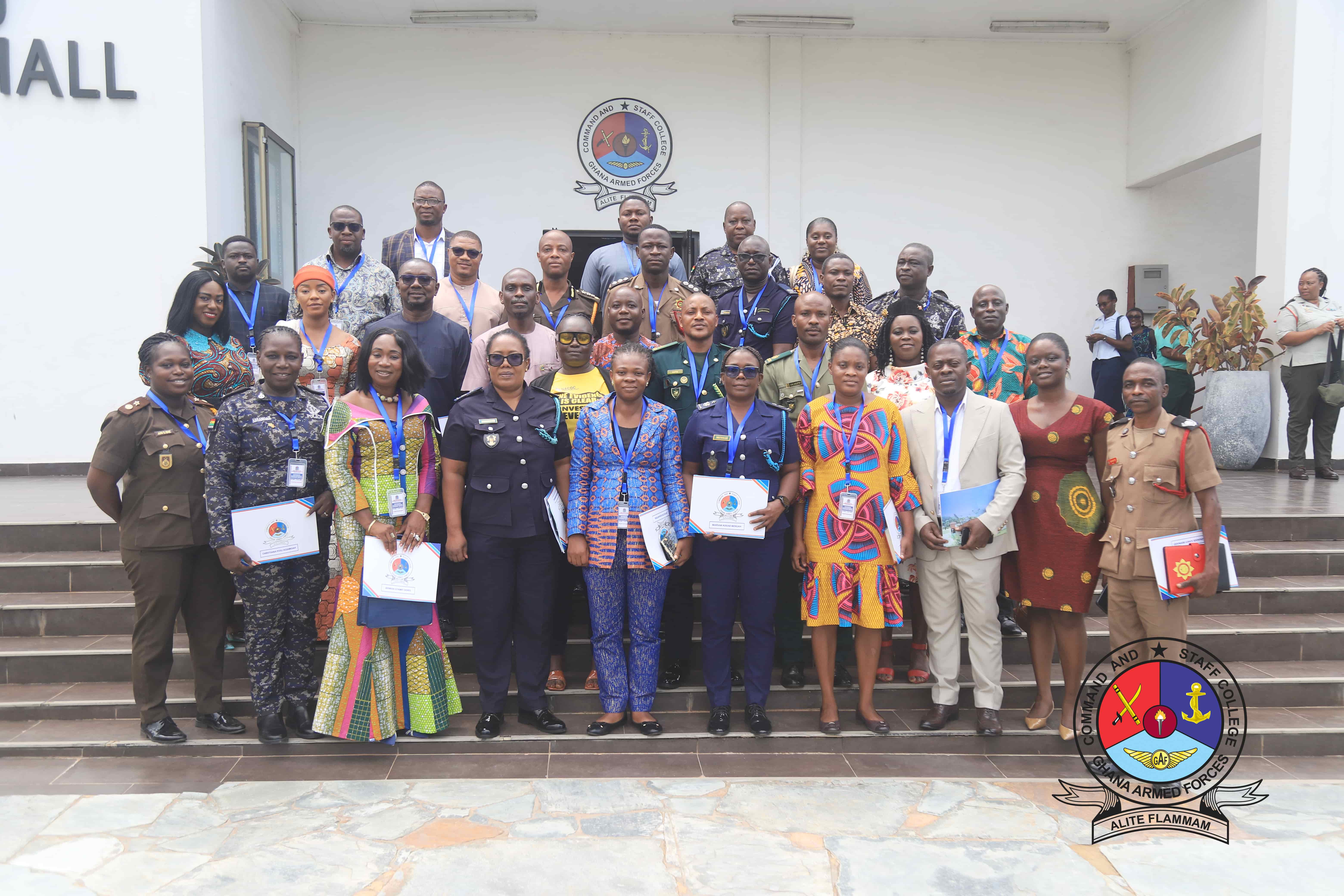
GAFCSC CLOSES 2025 DEFENCE MANAGEMENT COURSE WITH CALL FOR STRONGER SECURITY COLLABORATION
The Ghana Armed Forces Command and Staff College (GAFCSC) has successfully concluded the 2025 Defence Management Course (DMC) with a strong call for enhanced collaboration between security services and civilian institutions to address evolving security threats in Ghana and Africa.

The two-week course, which ended on Friday, 11 July 2025, brought together 135 participants from Ministries, Departments, Agencies, security institutions, students of GAFCSC Master’s in Security Studies and Master’s in Defence and International Politics and students of Senior Command and Staff Course 46.

In his closing remarks, the Acting Commandant, Brigadier General Jackson Wonje commended the dedication of course participants and staff. He emphasised that defence management is a collective national duty that requires strong cooperation among security services, government agencies and civil society actors.
Brig Gen Wonje urged participants to apply the knowledge gained, foster innovation, share insights within their institutions and maintain the networks built during the course to enhance operational effectiveness and strategic coordination.
The Course Coordinator Lt Col Abubakar Jamel Yayu highlighted the course’s focus on building mid-level professional capacity in defence and security management, with subjects covering security governance, policy frameworks and resource management. Participants engaged in lectures, discussions and practical exercises led by experts from academia, the judiciary and key government institutions.


As part of the course, a seminar was held for participants dubbed “Building Defence Institutions in an Era of Strategic Uncertainty”, which addressed urgent reforms needed in Africa’s defence sectors.
The Chairperson of the Seminar, Brigadier General Benjamin Freeman Kusi, stressed the need for resilient defence institutions capable of anticipating, adapting to and recovering from modern security threats. He highlighted political instability, cyber threats, terrorism, and weak governance structures as pressing challenges, emphasising strategic planning, innovation, and institutional reform as vital responses.

Colonel Kwesi Pepprah, a member of the Panel, further outlined the complexities facing African defence sectors, citing geopolitical rivalries, climate change and hybrid threats. He advocated for reforms including decentralisation, improved civil-military coordination, and investment in professional military education.
The seminar ended with a call for greater defence diplomacy, sustainable funding, and enhanced cooperation at national, regional, and global levels to safeguard institutional resilience and military readiness in an increasingly volatile security environment.
By: Lily Brenda Gadugah